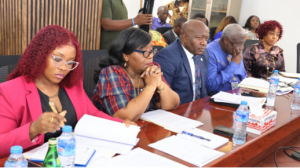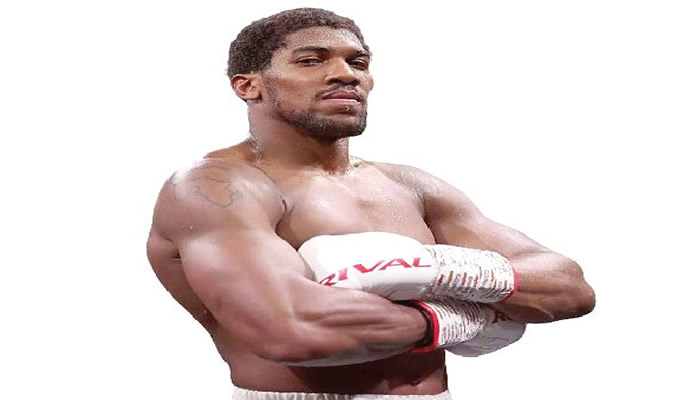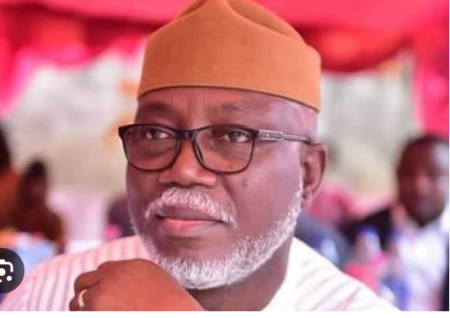Anthony Joshua’s recent trip to Ghana has ignited a fresh wave of discussion surrounding the enduring rivalry between Nigeria and Ghana. The British-Nigerian boxing champion’s candid remarks about his preconceived notions of Ghana, shaped by narratives within Nigeria, have highlighted the complex dynamics of this West African rivalry. His visit, initially unplanned, transformed into an eye-opening experience that challenged his previously held beliefs and showcased the often-overlooked charm and progress of Ghana. Joshua’s public acknowledgement of this shift in perspective has not only fueled the friendly banter between the two nations but also sparked a deeper conversation about the importance of firsthand experience in shaping one’s understanding of other cultures.
Joshua’s journey to Ghana began with an invitation to the Legacy RISE Sports: Battle of the Beasts boxing event. This sporting spectacle, spearheaded by Sharaf Mahama, provided the backdrop for Joshua’s transformative experience. While in Accra, the two-time unified world heavyweight champion engaged in a series of high-profile activities, including a courtesy call on President John Mahama at the Jubilee House. He also interacted with young athletes, made public appearances, and met with various dignitaries, immersing himself in the Ghanaian culture and society. These encounters allowed Joshua to witness firsthand the vibrancy and dynamism of Ghana, ultimately leading him to publicly acknowledge the inaccuracy of the perceptions he had absorbed in Nigeria.
The crux of the matter lies in Joshua’s confession that he had initially dismissed the idea of visiting Ghana due to prevalent opinions in Nigeria that often portray Nigeria as superior to its West African neighbor. This sentiment, he admitted, had significantly influenced his decision-making process. However, his time in Accra completely overturned these preconceived notions. Struck by the reality of Ghana’s progress and charm, he expressed his surprise and admiration, stating, “I’m now here and I’m looking around like, they’ve been lying to me.” This candid admission resonated with many, particularly Ghanaians, who have long contended with such perceptions from their Nigerian counterparts.
Joshua’s subsequent praise for Ghana encompassed various aspects of the country, from its infrastructure and organization to its culture and hospitality. He expressed particular admiration for the airport, a key gateway for international visitors, highlighting the importance of first impressions. Furthermore, he lauded the warmth and welcoming nature of the Ghanaian people, emphasizing the positive impact of their hospitality on his overall experience. This acknowledgement of Ghana’s cultural richness and welcoming atmosphere underscored the contrast between his preconceived notions and the reality he encountered. His public pronouncements served as a testament to the power of personal experience in challenging stereotypes and fostering cross-cultural understanding.
The impact of Joshua’s words extends beyond mere pleasantries. His statement, “I can’t wait to go back and tell everyone across the world how beautiful this place is,” signifies a commitment to becoming an ambassador for Ghana. This pledge to share his positive experience with a global audience holds significant weight, given his international stature as a boxing icon. By leveraging his platform to promote Ghana’s positive attributes, Joshua contributes to a more nuanced and accurate portrayal of the country, potentially influencing perceptions and encouraging tourism and investment. His willingness to challenge the existing narrative and share his newfound appreciation for Ghana demonstrates a genuine shift in perspective and a desire to bridge the divide between the two nations.
The ongoing rivalry between Nigeria and Ghana, often expressed through lighthearted banter and competitive spirit, has found a new chapter in Anthony Joshua’s experience. His journey from skepticism to admiration highlights the importance of firsthand experience in shaping one’s understanding of other cultures and nations. By publicly acknowledging his changed perspective, Joshua has not only contributed to the ongoing conversation about the Nigeria-Ghana dynamic but also underscored the power of personal encounters in breaking down stereotypes and fostering mutual respect. His story serves as a reminder that the narratives we inherit may not always reflect the full picture and that embracing open-mindedness and curiosity can lead to unexpected and enriching discoveries.














